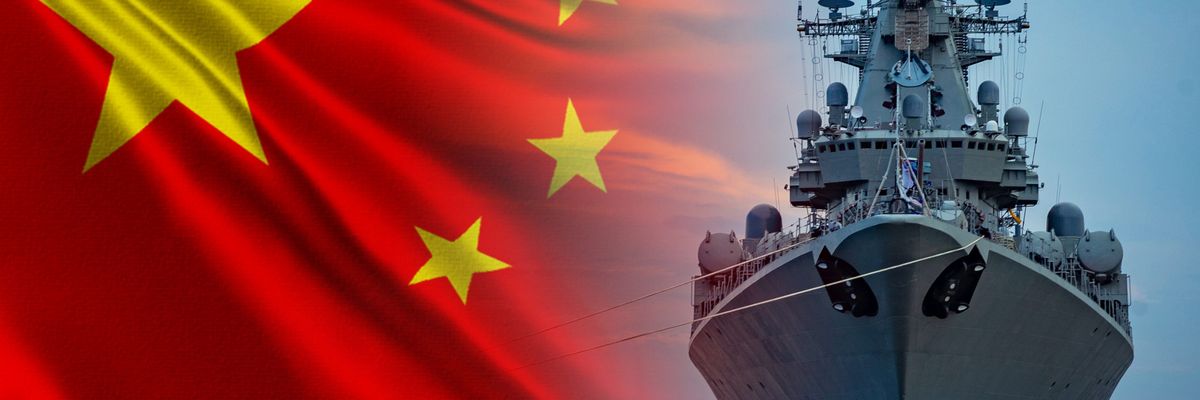The U.S. is not obliged to fight for Taiwan, but a growing number of people in Congress and the foreign policy establishment nonetheless want to abandon the sensible policy of strategic ambiguity that has helped to secure the peace in East Asia for the last two generations.
The opening salvo in this debate came last year in a Foreign Affairs article by Richard Haass and David Sacks, who argued that the U.S. should make an explicit security guarantee to Taiwan: “The time has come for the United States to introduce a policy of strategic clarity: one that makes explicit that the United States would respond to any Chinese use of force against Taiwan.” The proposed policy of “strategic clarity” is a solution in search of a problem, and it reflects the increasingly reckless hawkish consensus against China in Washington.
Since that article was first published, proponents of “strategic clarity” have only become louder and more insistent that Washington commit itself to fight a war that America can’t afford and would likely lose. A more accurate label for the “strategic clarity” option would be needless provocation or reckless overcommitment, and it is important that the Biden administration flatly rejects this idea before U.S.-Chinese relations get any worse.
The New York Times reported last week on the increasing support for making an explicit guarantee to Taiwan in Washington:
Senator Rick Scott, Republican of Florida, has introduced a bill that would authorize the president to take military action to defend Taiwan against a Chinese attack — making America’s intentions ambiguous no more. When Mr. Haass testified last month before a House Foreign Relations Committee panel on Asia, he was peppered with questions about how to deter the Chinese threat to Taiwan.
In remarks in February at an event hosted by The Washington Post, Robert M. Gates, a former defense secretary and CIA director who served under presidents of both parties, including George W. Bush and Barack Obama, called Taiwan the facet of U.S.-China relations that concerned him the most.
Mr. Gates said that it might be “time to abandon our longtime strategy of strategic ambiguity toward Taiwan.”
The chief reason why the U.S. shouldn’t make an explicit commitment to defend Taiwan is that fighting to defend Taiwan is not vital to the security of the United States. On the contrary, making such a commitment puts the United States at risk of fighting a major war on China’s doorstep, and the costs of that war are practically guaranteed to exceed the benefits. The last time that the U.S. directly engaged Chinese forces in their own backyard in the 1950s, it did not go very well for the U.S. and its allies, and Chinese capabilities have only improved since then. The risks are even greater now that both the U.S. and China are nuclear-armed states.
The other main reason not to do this is that making a defense commitment explicit is a good way to trigger the invasion that it is supposed to deter. Because the U.S. has far less at stake in Taiwan than China does, the Chinese government might see the U.S. promise to respond to an attack as an empty one. It would probably also view a public commitment to defend Taiwan as tantamount to recognition of the island’s independence or as a signal that the U.S. would support an independence declaration by Taipei. “Strategic clarity” would likely goad China into striking instead of giving them an additional incentive to hold back.
To be a credible deterrent, a U.S. commitment to defend against Chinese attack requires Beijing to believe that the U.S. has both the means and the will to honor that commitment, but the truth is that the U.S. may not have the capabilities to fulfill this promise and it lacks the political will to do so. In other words, an explicit commitment to defend Taiwan would expose Taiwan and the U.S. to greater risk than both currently face without providing any added deterrence. So-called “strategic clarity” would be an invitation to war with China, which would be a catastrophe for Taiwan, the stability of East Asia, and the U.S. all at once.
It is no wonder that there is little public support for going to war for Taiwan. A 2019 Chicago Council of Global Affairs survey found that only 35 percent of Americans would support military action in the event that Taiwan was attacked. A war for Taiwan would be much more dangerous and costly than our other wars of choice over the last 30 years, and it would have scant public support from the start. U.S. intervention in the conflict would be half-hearted at best, and the public would quickly sour on the war as the costs began to mount. The U.S. shouldn’t make promises to defend another country if it can’t guarantee that it will honor those promises, and it shouldn’t make those promises when it has no compelling reason to do so. In the case of Taiwan, the U.S. would either end up reneging on its commitment or it would quickly come to regret honoring it.
The Biden administration has been talking up the potential Chinese threat to Taiwan in recent weeks, and Admiral Philip Davidson, the head of Indo-Pacific Command (INDOPACOM), has gone so far as to say that he believes China might attack within the next six years. The admiral has also been rather imaginative in his assessments of China’s nuclear buildup. In addition to misjudging the extent of the danger from China, exaggerating the Chinese threat to Taiwan is not helpful, and according to some experts it is playing into the Chinese government’s hands.
Bonnie Glaser and Richard Bush made this point earlier this month when they wrote, “Hyping the threat that China poses to Taiwan does Beijing's work for it.” Far from reassuring the people of Taiwan, this rhetoric is a discouraging reminder of the disparity of power between them and the mainland.
China has its own reasons not to make a huge gamble by invading, and the U.S. should do nothing that gives Beijing reason to think that it needs to take military action in the near future. An explicit American defense commitment would likely be perceived as an infringement of Chinese sovereignty and Beijing’s reaction would be accordingly severe. The status quo has maintained peace in the region for four decades and should not be lightly cast aside because of the sudden trendiness of being hard-line on China.
Strategic ambiguity with respect to Taiwan has helped to keep the peace in East Asia for more than 40 years. There is no reason to fix something that continues to work and shows no signs of breaking down. Making such a drastic change in policy would destabilize the region at a time when U.S.-Chinese relations are already extremely poor. The U.S. can and should continue to provide Taiwan with the appropriate means to defend itself, but otherwise it should be seeking to de-escalate tensions with Beijing rather than provoking them with ill-considered declarations that our government likely cannot back up.
Loose talk from foreign policy pundits that a Chinese invasion might take place at any moment is not only wrong as a matter of fact, but it also serves to stoke irrational fears that could make conflict more likely.
















